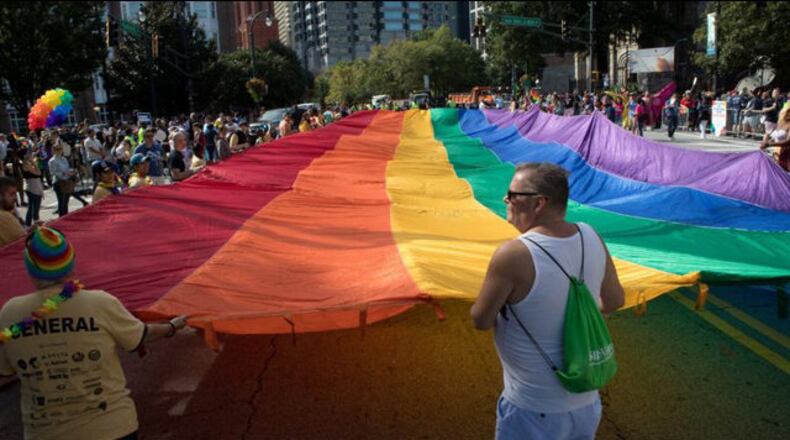A new study looks at the LGBTQ community’s experience in the South, exploring such areas as religion, work and health care.
The LGBTQ Institute's Southern Survey, which was created in partnership with Georgia State University, found that while there has been progress in areas such as work, transgender Southerners and people of color still face higher rates of discrimination and hostility.
The hope is that the survey’s findings will help close the information gap among policymakers, provide information to advocates and raise the visibility of the LGBTQ community.
“While the LGBTQ community in the South is a very resilient and diverse group of people, there are serious challenges that we face,” said the institute’s Executive Director Ryan Roemerman. “The key issues we face, especially in the transgender and community of color, are higher rates of discrimination, harassment and exclusion across the board. It tells you society as a whole is still trying to understand transgender people. They’re much more likely to be comfortable with lesbian, gay or bisexual folks.”
The online survey respondents include 6,500 LGBTQ Southerners across 14 states, including Georgia. The LGBTQ Institute is housed at Atlanta's National Center for Civil and Human Rights and was formed in 2015 to advance LGBTQ equality through research and education focused on the American South.
Roemerman said in the last year 14.1 percent of the lesbian, gay and bisexual respondents reported feeling unwelcome at a place of worship; compared to 20.4 percent of people who are transgender.
Credit: Steve Schaefer
Credit: Steve Schaefer
Among other key findings:
Overall, 93.2 percent of LGBTQ Southerners have at least some college experience, while 6.8 reported earning a high school diploma, GED or having less than a high school diploma.
Younger respondents are more likely to be self-aware of their sexual orientation in high school than older respondents.
Hispanic, African-American/African, or other people of color are significantly more likely to be out about their transgender identity than non-Hispanic white respondents.
Roughly 33 percent of all respondents report some form of discrimination when trying to access health care services because of their sexual orientation or transgender status in the past year, with nearly half choosing to avoid treatment.
Transgender and those who identified as another gender report unfair treatment by health care providers at two times the rate reported by other respondents.
Transgender Southerners are significantly more likely to report being treated unfairly by an employer in hiring, pay or promotion than their lesbian, gay and bisexual peers.
LGBT Southerners are politically active. 93 percent of respondents are registered to vote and 90 percent voted in the 2016 election. More than half identified as Democrat.
When it comes to spending, the LGBTQ community “really makes sure they are using their money to let companies know whether they are happy with them because the company showed they were supportive of the community,” said Roemerman.
If not, 75.2 percent of respondents said they would spend their money elsewhere.
About the Author





